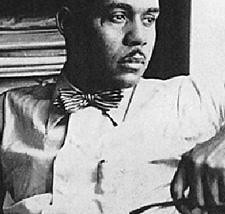 As Ellison would teach his European pupils in Salzburg, the existence of many diverse communities rendered his native land richly heterogeneous—a veritable “international country”—and also testified to an ongoing and still challenging attempt at reconciling color and democracy. The best of American literature, and its novels in particular, contributed to the ongoing effort to forge “unity in diversity,” and this national dilemma manifested important ties to the crises “faced…by peoples throughout the world.” “Through forging forms of the novel worthy of [American diversity],” argued Ellison in his 1953 National Book Award acceptance speech, “we anticipate the resolution of those world problems of humanity which for the moment seem…completely insoluble.” The literary instantiation of American pluralism would help teach Europeans and all the world’s peoples how to create a better future, a valuable lesson for the Salzburg students who had historically received little if any exposure to literatures of color.
As Ellison would teach his European pupils in Salzburg, the existence of many diverse communities rendered his native land richly heterogeneous—a veritable “international country”—and also testified to an ongoing and still challenging attempt at reconciling color and democracy. The best of American literature, and its novels in particular, contributed to the ongoing effort to forge “unity in diversity,” and this national dilemma manifested important ties to the crises “faced…by peoples throughout the world.” “Through forging forms of the novel worthy of [American diversity],” argued Ellison in his 1953 National Book Award acceptance speech, “we anticipate the resolution of those world problems of humanity which for the moment seem…completely insoluble.” The literary instantiation of American pluralism would help teach Europeans and all the world’s peoples how to create a better future, a valuable lesson for the Salzburg students who had historically received little if any exposure to literatures of color.
more here.
